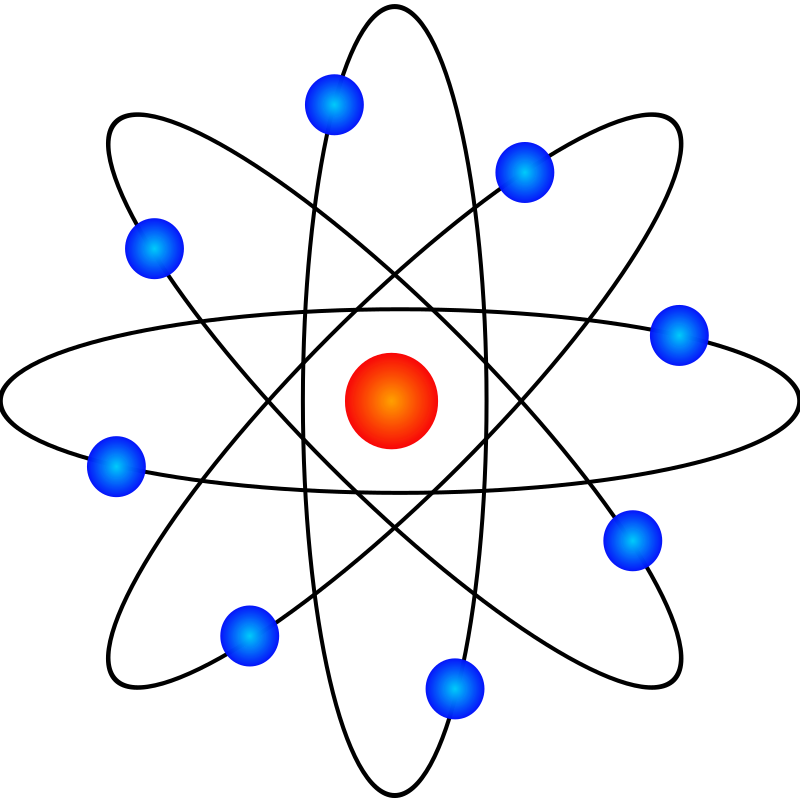- Home
- Definition
- what's quantum physics?
What does quantum physics mean?
What does quantum physics mean? Quantum physics, according to the dictionary, has roots in the Latin language. It comes from the Latin word quantus and the English word quantity. They both combine to form quantum. In physics, the word alludes to particles only exhibiting certain amounts of energy with associated quantum states.
What does quantum physics mean: the hydrogen atom
One of the simplest examples of this comes from the hydrogen atom. Since it is the first element on the periodic table, it has just one proton (at the center of the atom) and one electron (on the atom’s peripheral). Theoretically it can have an infinite number of energy levels. The energy of each level is given by E = -13.6/n^2 . For instance, at the first energy level n=1, the energy is E = -13.6/1^2 = -13.6/1 = -13.6 (eV means electron volt, a common unit of energy). The second energy level n=2 is E = -13.6/2^2 = -13.6/4 = -3.4eV. You can use similar methodology for finding energies for n=3, n=4, n=5, and so forth.
What does quantum physics mean: alternative meanings
Quantum physics has other meanings besides this. Quantum physics also means the physics of the very very small. By small, we mean at the nano (10-9) and Pico (10-12) scale. To understand how small this is, imagine the following scenario. The diameter of a hydrogen atom is approximately 120 picometers or 120 * 10-12 meters. If we take a dime which is approximately 0.018 meters and try and fit as many hydrogen atoms in there as we can, we can fit about 149250000 atoms in there. That is more than a hundred million atoms!!! If that many atoms can fit in a dime (an already tiny object by our standards), that should give you an idea as to how small atoms are!!!
What does quantum physics mean: quantum physics vs quantum mechanics
To improve our understanding of quantum physics, it helps to compare its definition to quantum mechanics. Although quantum physics and quantum mechanics are often used interchangeably, according to this person here there is a subtle difference between the two phrases. Quantum physics is the general study of subatomic (exceedingly small) particles. Quantum mechanics refers to the mathematical theory used to describe subatomic particles. Preliminary mathematics includes calculus, algebra, linear algebra, and probability theory. However, for the most part scientists use these phrases in the exact way. The difference between them is usually inconsequential.
What does quantum physics mean: Quantum physics vs quantum chemistry
Here is another way to approach the definition of quantum physics. Quantum physics, from my perspective, is the study of how atoms, molecules, and how they interact with each other to create new phenomenon. This new phenomenon includes but is not limited to new chemical compounds, packets of light (quanta) and various other kinds. However, quantum chemistry is similar in that it also studies very similar phenomenon.
So, another interesting question is how quantum chemistry differs from quantum physics. Unfortunately, there is no clear-cut and black/white answer. As many people are beginning to realize, various subjects and disciplines do not exist in isolation from each other. In order to expand our knowledge, scientists and academics are beginning to explore how these subjects interconnect with each other. For instance, biology and physics can use quantum sensors to provide measurements in the brain as detailed in this article here.
Returning to the subject, quantum physics and quantum chemistry are very similar in that regard. The both deal with the aforementioned nano and pico scales and often overlap with each other. However, in my interpretation, their differences lie in the difference between physics and chemistry themselves. My high school science teacher in freshman year stated that the difference between them is as follows. Physics is the study of matter and ENERGY. In contrast, chemistry is the study of MATTER and energy. In both these fields, physics and chemistry are both studied. This is because matter and energy are both interconnected; one cannot exist without the other. However, physics and chemistry emphasize one more that the other.
Now we’ll tie the discussion in the preceding paragraph to our discussion of quantum physics vs quantum chemistry. As stated previously, they overlap each other very often. However, the key difference (in my opinion) is that quantum physics studies energy at the very small scales. In contrast, quantum chemistry studies matter and objects in the very small scales. Note: from my perspective, matter and energy are even more intertwined at the quantum scales versus the everyday world.
However, in order to truly know what quantum physics means, you must study it for yourself. Although you do not have to be an expert physicist to study it, you do need to spend time pondering and studying the concepts. As an allegory, there is a difference between reading about basketball and playing the game. Reading gives you information about the game, physically playing it gives you insight into how basketball actually works. In the same vein, you must actually take time, do problems, and ponder concepts if you truly want to understand quantum mechanics.
However, in order to truly know what quantum physics means, you must study it for yourself. Although you do not have to be an expert physicist to study it, you do need to spend time pondering and studying the concepts. As an allegory, there is a difference between reading about basketball and playing the game. Reading gives you information about the game, physically playing it gives you insight into how basketball actually works. In the same vein, you must actually take time, do problems, and ponder concepts if you truly want to understand quantum mechanics.
